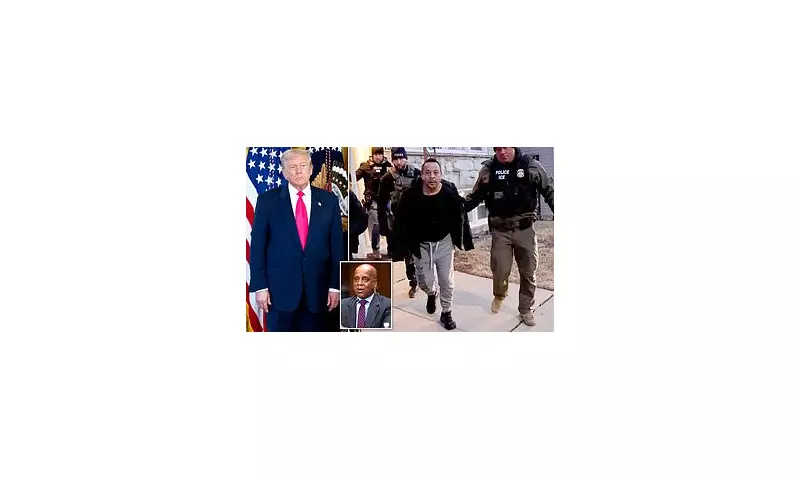
A federal judge in Chicago has ordered the Trump administration to release approximately 600 migrants who were detained during a recent immigration enforcement operation, creating another flashpoint in the ongoing political battle over US immigration policy.
Legal Challenge to Immigration Crackdown
District Judge Jeffrey Cummings, appointed by President Biden, issued the ruling just one day after former President Donald Trump declared victory following 'Operation Midway Blitz' - a weeks-long initiative aimed at removing illegal immigrants from Chicago and reducing crime. The judge's order applies specifically to migrants who were subject to warrantless arrests conducted without probable cause.
According to the Chicago Tribune, Judge Cummings authorised the release of detainees who aren't considered security risks while they await immigration proceedings. The release conditions include $1,500 bond payments and some form of monitoring, potentially including electronic ankle bracelets. Many of those originally taken into custody have already been deported or agreed to leave the country voluntarily.
Political Fallout and Official Reactions
The Department of Homeland Security strongly condemned the judicial decision in a social media post, stating: 'At every turn activist judges, sanctuary politicians, and violent rioters have actively tried to prevent our law enforcement officers from arresting and removing the worst of the worst.' The department further claimed the ruling 'is putting the lives of Americans directly at risk' by ordering the release of 615 illegal aliens into communities.
The legal challenge was brought by the National Immigrant Justice Center and the American Civil Liberties Union, which argued that the wave of migrant arrests violated legal standards. This represents the latest setback to President Trump's immigration enforcement efforts in America's third-largest city.
Broader Political Context and Ongoing Conflicts
The controversy extends beyond this single ruling. President Trump had ordered hundreds of National Guard troops to the Democratic-run city to combat crime and support immigration enforcement, but federal courts have blocked this deployment. The administration has asked the Supreme Court to overturn these lower court rulings.
Illinois Governor JB Pritzker and Chicago Mayor Brandon Johnson have consistently opposed federal intervention, with Pritzker previously warning: 'Mr. President, do not come to Chicago. You are neither wanted here nor needed here.' The governor characterised Trump's actions as 'illegal, unconstitutional, and un-American' political intimidation targeting Democratic strongholds.
Federal officials, including ICE agents and Border Patrol authorities, flooded Chicago in early September at Trump's request, arresting thousands of illegal immigrants, violent criminals, and gang members. However, their presence sparked violent protests where locals attempted to interfere with ICE operations, rammed federal officials' vehicles, and in some instances shot at agents.
In a Truth Social post, Trump claimed significant crime reductions since his intervention began on September 8, despite what he called 'radical opposition' from local Democratic leadership. He stated that Operation Midway Blitz had resulted in a 35 percent reduction in shootings, 41 percent fewer robberies, and nearly 50 percent fewer carjackings.
Meanwhile, Chicago Mayor Johnson signed an executive order establishing 'ICE-free zones' and prohibiting parking facilities from being used by ICE agents. The political standoff continues as both sides prepare for further legal battles over immigration enforcement authority and states' rights.





